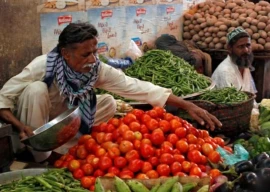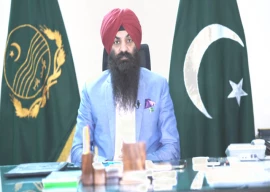
According to the press release, the medical camps have been established in Mianwali, Bhakkhar, Layyah, Dera Ghazi Khan, Rajanpur, Muzaffargarh and Rahim Yar Khan.
Health Director General Dr Zahid Pervez said this while chairing a departmental meeting to review arrangements for flood-affected people.
“Doctors and staff have been deputed at these relief camps. Necessary medicines, anti-snake venom (ASV) and anti-rabies vaccine (ARV) have also been supplied,” he said.
He said that a ban had been imposed on grant of leave to field staff of the department.
“Arrangements have been made to provide medical cover to the flood-affected,” he said.
He said that the World Health Organisation would provide 40 medical kits for the flood-affected. “Each kit contains medicines for 9,000 people. The UNICEF has also been requested to provide 1 million tablets for water purification. The first consignment of 300,000 tablets will arrive within two days,” he said.
He said that medical depots in Lahore and Multan would remain open round the clock. “The Multan depot will cater to the needs of southern Punjab. The Lahore depot will meet the requirements of central and northern Punjab during the monsoon season,” he said.
Pervez said that a flood monitoring and response centre had been established at the department. “The centre will collect data of patients and pregnant women being treated at all relief camps. It will also issue early disease warnings to prevent epidemics,” he said.
The meeting was informed that 8,000 mosquito nets were available at the Lahore depot and 3,000 in Multan.
Published in The Express Tribune, July 23rd, 2015.


1723278472-0/BeFunky-collage-(4)1723278472-0-165x106.webp)














COMMENTS
Comments are moderated and generally will be posted if they are on-topic and not abusive.
For more information, please see our Comments FAQ